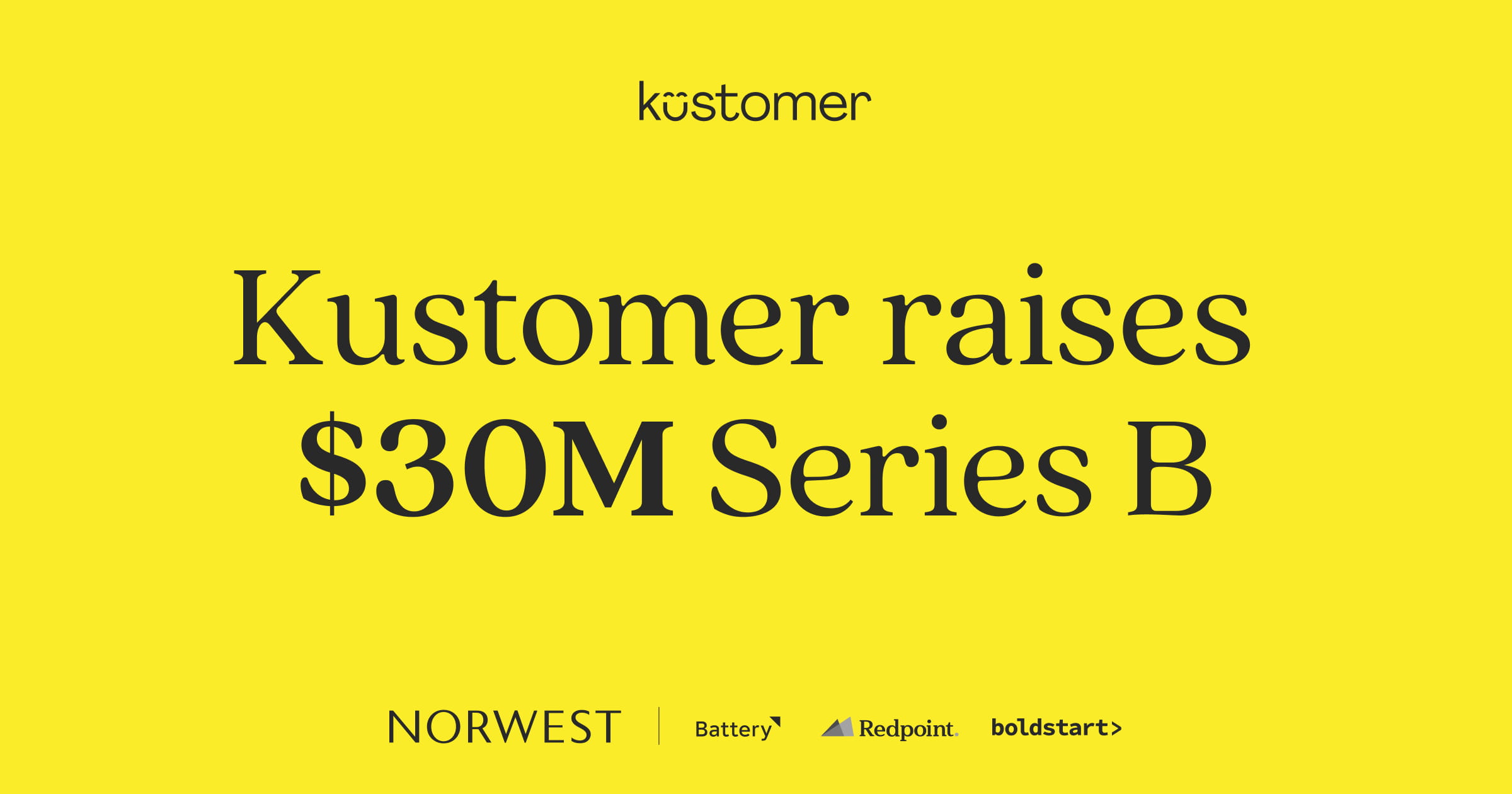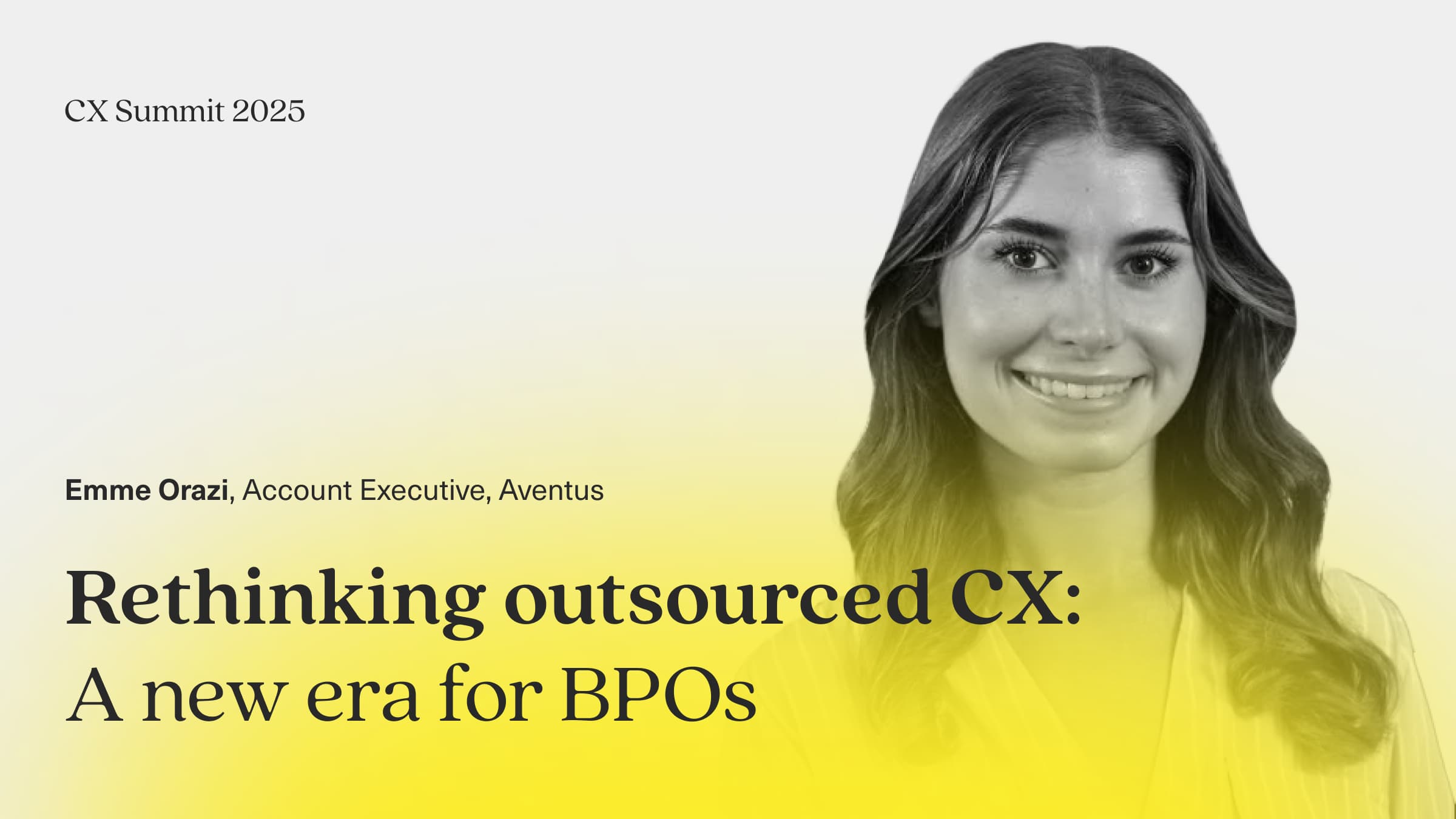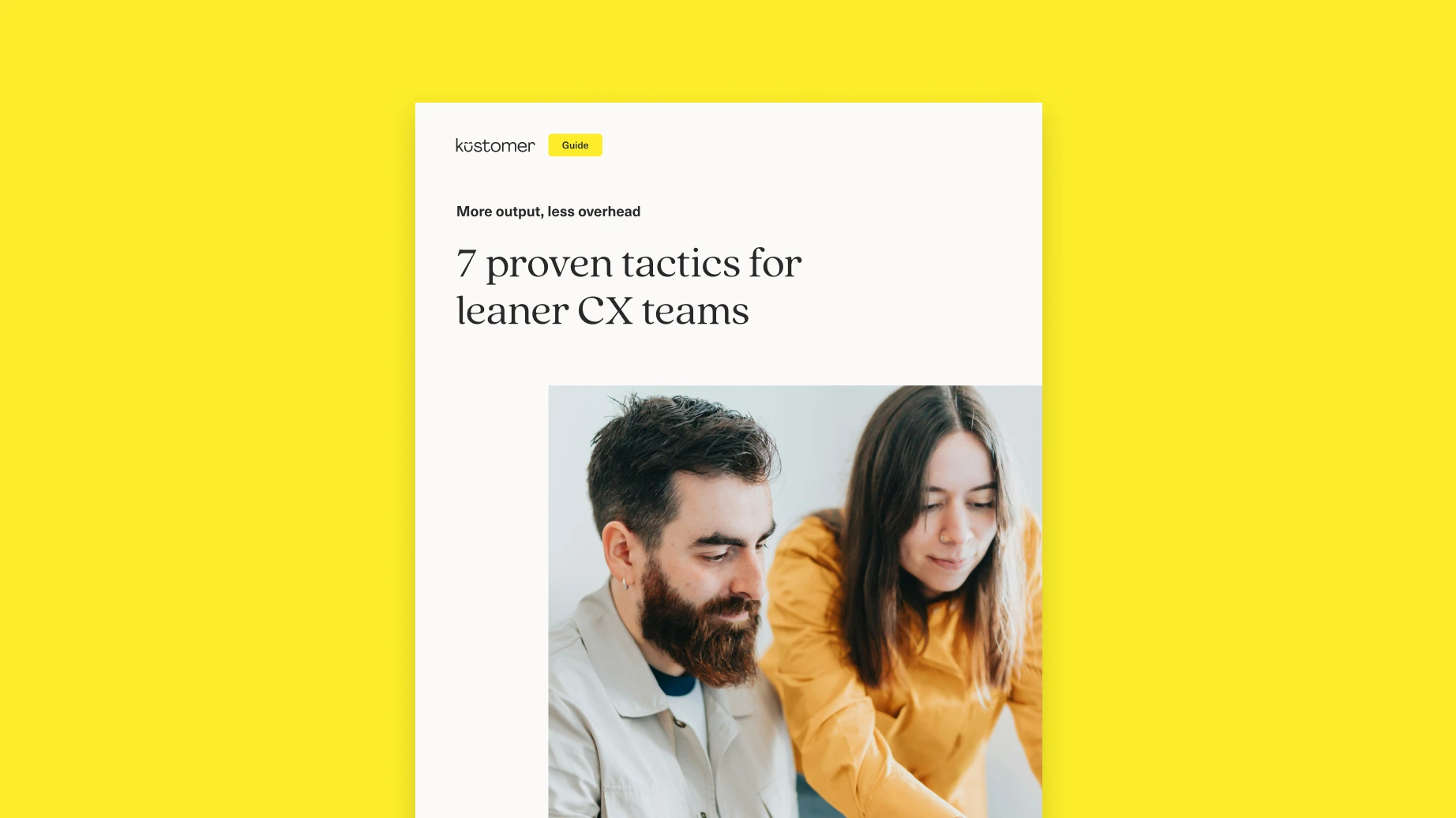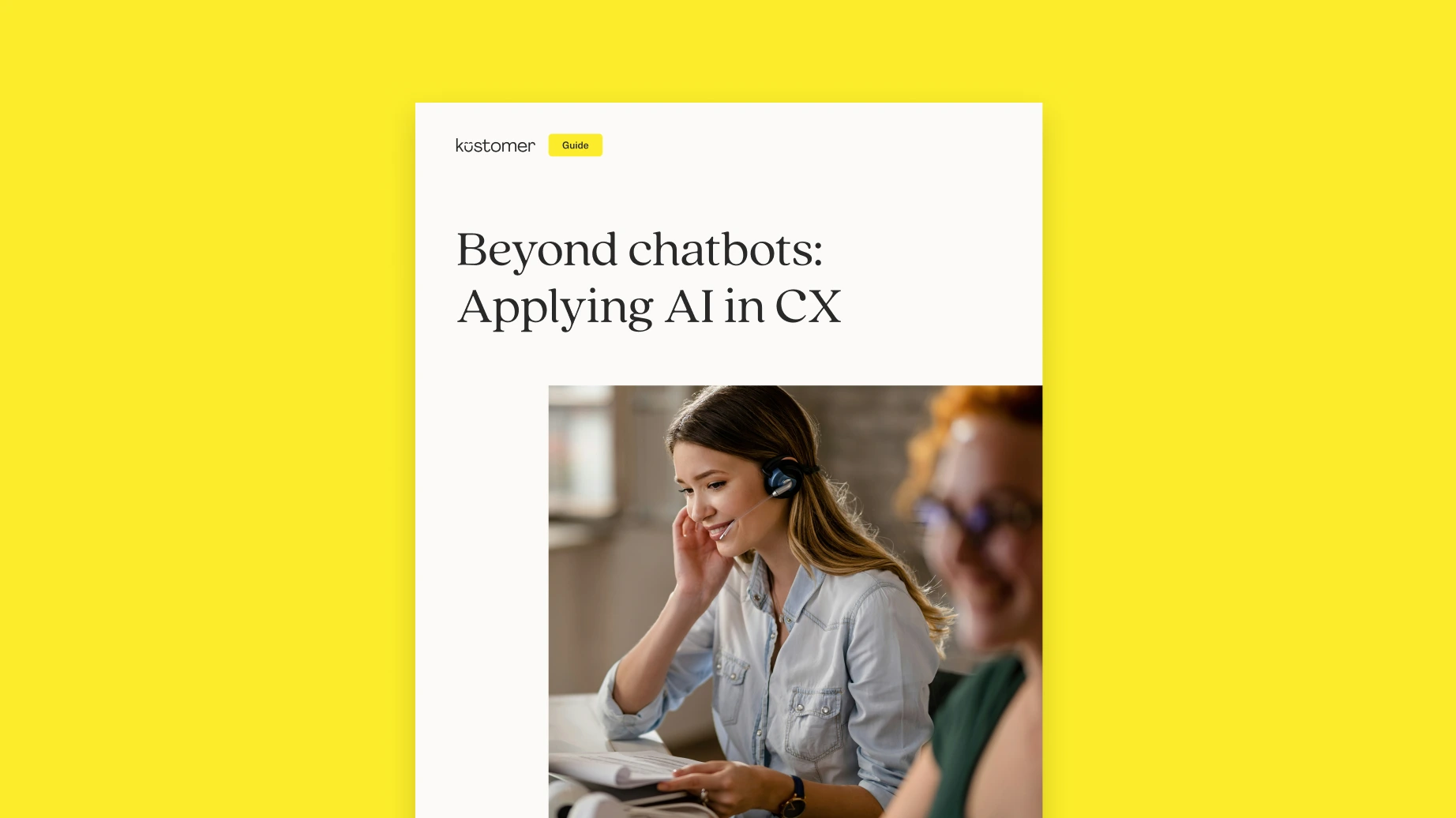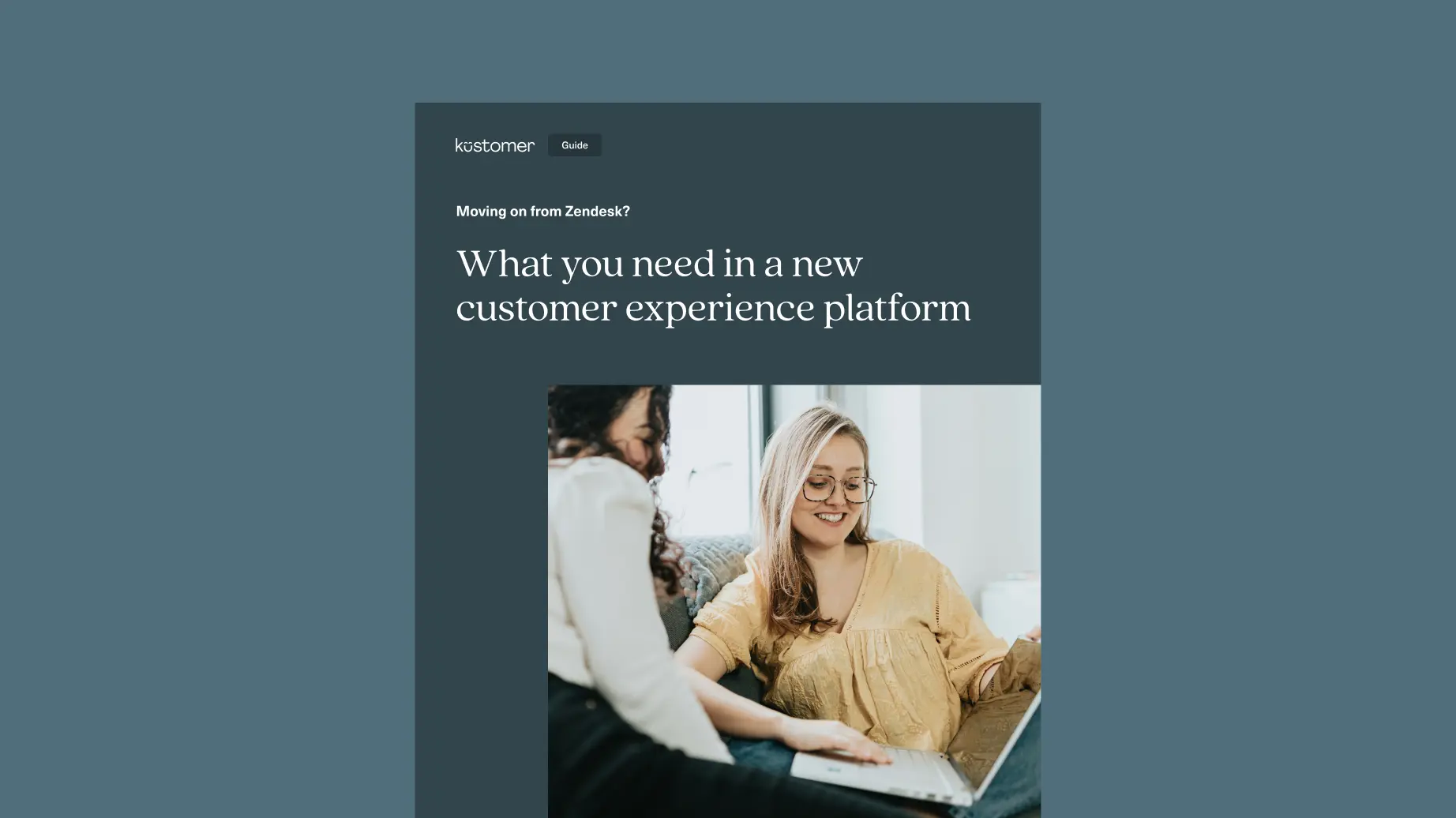Customer experience leaders today are navigating an evolving landscape where customer support is no longer just a problem-solving function, but a key driver of brand loyalty and revenue growth. In this conversation, Carly Horn of Kustomer and Emme Orazi of Avetnus discuss trends reshaping CX strategy, from brand tone consistency to AI adoption and proactive support models.
This interview has been edited for clarity.
Carly Horn: I love thinking about how many different ways you are getting in touch with customers, and making sure your approach to supporting them reflects that is really important. On that note, what trends are you seeing in how brands are approaching outsourced versus in-house support? You touched on it a little, but what are the trends you are seeing now, and how are you supporting them?
Emme Orazi: A major trend I am seeing is a complementary model focused on meeting customers where they are, like you mentioned. The foundation of that approach is brand tone, making sure it shines through whether you have only an outsourced team, only an in-house team, or a mix of both. I think a kind of secret weapon is having both in-house and outsourced teams because it drives healthy competition, and the brand and customers benefit as a result.
At the core, it is all about the brand tone you are trying to portray and ensuring the partner you are working with can carry that through. Brands today are not just looking for outsourced teams, they are looking for strategic partners who can maintain that brand voice, meet customers where they are, and solve problems effectively.
Carly Horn: Absolutely. I love that. Brand tone is so important. You want it to feel super consistent and like it is all coming from one company. What are some of the things you do to help external teams maintain that brand consistency when supporting customers?
Emme Orazi: The discovery process is crucial. We build a strong foundation by asking, are we using emojis? How should we respond to customers? We look closely at how the brand wants us to communicate through customer support channels and ensure it aligns with other areas like Amazon and social media.
Brands are also looking for outsourced partners to share best practices, what is working with other clients, and what trends we are seeing that they may not yet be aware of. Customer support today is competing against experiences like Amazon, where if your package is stolen, you can get a replacement within 24 hours, or return a product without having to ship it back.
It is important to understand the brand’s goals around tone and ensure there is a seamless feedback loop between the internal and external teams.
Carly Horn: Are you seeing a shift in customer expectations because of that Amazon-level experience? Is that changing how brands want to communicate across all channels?
Emme Orazi: It definitely depends on the channel mix. For example, Dude Wipes is very Amazon-heavy, while other brands are more direct-to-consumer. Both approaches give brands opportunities to go above and beyond.
I met with a house of brands recently on Kustomer, and they had this unique initiative called the Special Elves Project. They built a prize toolbox so that if a customer shared they were going through a hard time, like after the LA fires, the team could send something special, like a Visa gift card or an experiential gift, not just their own products.
It is a great example of how brands can differentiate themselves through modern customer support.
Carly Horn: I love that. It really shows how complex it can be to maintain a consistent experience when customers might shop on Amazon, through Nordstrom, directly on your site, or even in a store. Making all those interactions feel cohesive is a real challenge.
Emme Orazi: It can definitely be overwhelming. Even on the brand side, there are so many tools available to help make the customer experience seamless. Having the right people in the right seats, clear goals, and strong communication across teams is what really helps brands deliver that wow experience.
Carly Horn: Absolutely. I think this ties into something bigger: the role technology, AI, and automation play in CX delivery strategy. How are you seeing that evolve? I have been thinking a lot about not just how AI saves money, but about what kind of experience it creates. Is it actually better? How do we balance that with the personal experience a human can deliver?
Emme Orazi: At Aventus, we are extremely AI-first. Our goal is to help brands fully take advantage of the tech stack they have. AI is a big part of that, but there is a learning curve as brands continue to implement it.
There are so many different AI tools today, and experiences can vary a lot from brand to brand. A great AI agent experience will stand out, while a negative one can make customers not want to engage with AI again.
It is important to tie AI implementation back to the brand tone and create a seamless experience. AI also helps us create tiers of service, making sure the right customer is connected to the right agent. AI can handle basic inquiries, like "where is my order," while human agents can focus on high-value customers, subscription retention, or reaching out directly to offer help.
Another trend we are seeing is more brands adding phone support again to give customers the option to talk to someone if they prefer. Overall, AI is incredibly beneficial when used thoughtfully, and I think every brand will eventually adopt it in some way to better meet customer expectations.
Carly Horn: I think the voice support trend is so interesting. We definitely have brands where the demographic really prefers calling, or even writing very long, very personal emails. It really has to be personalized to who the customer is.
Emme Orazi: Exactly.
Carly Horn: Are you finding that brands are still feeling anxious about implementing AI? We are seeing that too, even though there is so much value, especially in CX.
Emme Orazi: Absolutely. The anxiety is rooted in the unknown. Two years ago, AI was not a big part of customer experience. Brands might have used AI internally to streamline operations, but the high-level AI agents we see today are new.
My advice is, you do not know unless you try. AI is very reactive and always learning. You can always adapt and adjust if something does not work out. It is not a big lift to tweak and improve it.
Carly Horn: Yes, absolutely. I also think support reps sometimes feel anxiety about it. But in my mind, AI allows human agents to focus on more complex conversations, instead of answering simple questions like return policies. It actually lets them have more meaningful interactions.
Emme Orazi: Exactly. And you do not have to jump in headfirst. Brands can start by using AI to support their human agents first. Once they are comfortable, implementing AI agents becomes a lot easier and more successful.
Carly Horn: Absolutely. Switching gears a little, what advice would you give a startup that is choosing their first outsourced support partner?
Emme Orazi: Look for someone who shares your partnership values. At Aventus, we see ourselves as an extension of the team, not just another vendor. Think of it like you are hiring internally.
You are not just getting agents, you are getting workforce planning, education, escalation management, and support during peak times. Finding a strategic partner with the same core values is crucial for a long-term, successful relationship. Building a strong foundation during onboarding is also key.
Carly Horn: I completely agree. I love that thinking. Any final advice you would leave our listeners with?
Emme Orazi: Be open to learning, especially with AI and customer experience. Customer support is a direct feedback loop with your customers, so listen to what they are saying. Implement those insights not only in CX but across your brand.
Customer support has often been overlooked, but that is changing. Lean into your customers because they are leaning into you. We would not be here without them.
Carly Horn: I have been thinking about customer support more and more as a revenue channel. There are so many ways partners like you and technologies like AI help brands go beyond solving problems and truly elevate the customer experience.
Emme Orazi: Absolutely. I think proactive support is going to be a major theme as AI continues to grow. It is not just about post-purchase support anymore. It is about pre-purchase too, answering questions and creating positive experiences early. Great customer experiences create loyalty and word-of-mouth, and that human touch will always be essential, even as AI plays a bigger role.
Closing thoughts
As customer expectations continue to rise, CX leaders must think strategically about every interaction across every channel. From maintaining a strong, consistent brand tone to embracing AI thoughtfully and building proactive support models, the future of customer experience will be defined by flexibility, partnership, and innovation. By treating customer support as a revenue driver and a direct feedback loop, brands can create meaningful connections that drive loyalty, differentiate themselves in crowded markets, and fuel long-term growth.
Ready to explore how Kustomer can help your CX organization scale? Talk to our team today!
